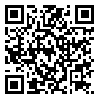1. American Psychiatric Association. Diagnostic and Statistical Manual of Mental Disorders. 5th edition. Arlington, VA: American Psychiatric Association; 2013.
2. Hassanzadeh S, Amraei K, Samadzadeh S. A meta-analysis of attention deficit/hyperactivity disorder prevalence in Iran. Empowering Exceptional Children, 2019;10(2):165–77. [Persian] [
Article]
3. Mash EJ, Wolfe DA. Abnormal child psychology. 7th edition. Wadsworth publishing: Cengage Learning; 2018.
4. Barkley RA. Taking charge of ADHD: the complete authoritative guide for parents. New York: Guilford Press; 2020.
5. Diamond A. Executive functions. Handb Clin Neurol. 2020;17(3):225–40. https://doi.org/10.1016/b978-0-444-64150-2.00020-4
6. Dawson P, Guare R. Executive skills in children and adolescents: a practical guide to assessment and intervention (The Guilford practical intervention in the schools series). New York: Guilford Press; 2018.
7. Barkley RA. Barkley deficits in executive functioning scale children and adolescents (BDEFS-CA). New York: Guilford Press; 2012.
8. Lee YCh, Yang HJ, Chen VC hung, Lee WT, Teng MJ, Lin CH, et al. Meta-analysis of quality of life in children and adolescents with ADHD: By both parent proxy-report and child self-report using PedsQL™. Res Dev Disabil. 2016;51–52:160–72. [
DOI]
9. Faraone SV, Banaschewski T, Coghill D, Zheng Y, Biederman J, Bellgrove MA, et al. The world federation of ADHD international consensus statement: 208 evidence-based conclusions about the disorder. Neurosci Biobehav Rev. 2021;128:789–818. [
DOI]
10. Vasserman M, McGinley J, Montalto D, Powell S, Gomes H. Review of treatments for ADHD and the evidence behind them. 2017.
11. Diamond A. Activities and programs that improve children's executive functions. Curr Dir Psychol Sci. 2012;21(5):335–41. [
DOI]
12. Barkley RA. 12 principles for raising a child with ADHD. New York: Guilford Press; 2020.
13. Kaduson HG, Schaefer CE. Short-term play therapy for children. Third edition. New York: Guilford Press; 2016.
14. Kasiati, Naruvita SR, Harti U, Yulia, Yunitasari SE. Play cognitive behavioral therapy improves the concentration of children with ADHD. Journal Scientia. 2022;11(2):439–43.
15. Sin BSY, Lee Ai Cheng J. Psychoeducation and family intervention by parents of children with attention deficit hyperactive disorder: a comprehensive review. Journal of Cognitive Sciences and Human Development. 2022;8(2):115–38. [
DOI]
16. Guerney L. Group filial therapy: the complete guide to teaching parents to play therapeutically with their children. London: Jessica Kingsley Pub; 2013.
17. Opiola KK, Bratton SC. The efficacy of child parent relationship therapy for adoptive families: a replication study. Journal of Counseling & Development. 2018;96(2):155–66. [
DOI]
18. Landreth GL, Bratton SC. Child-parent relationship therapy (CPRT) an evidence-based 10 session filial therapy model. Second edition. New York: Routledge; 2019.
19. Asgari Nekah SM, Abedi Z. The effectiveness of executive functions based play therapy on improving response inhibition, planning and working memory in children with attention deficit hyperactivity disorder. Journal of Cognitive Psychology. 2014;2(1):41–51. [Persian] [
Article]
20. Noorani Jurjadeh SR, Mashhadi A, Tabibi Z, Kheirkhah F. Effectiveness of executive functions training based on daily life on executive functioning in children with attention deficit/ hyperactivity disorder. Advances in Cognitive Sciences. 2016;18(1):68–78. [Persian] [
Article]
21. Tamm L, Nakonezny PA. Metacognitive executive function training for young children with ADHD: a proof-of-concept study. Atten Defic Hyperact Disord. 2015;7(3):183–90. [
DOI]
22. Shuai L, Daley D, Wang YF, Zhang JS, Kong YT, Tan X, et al. Executive function training for children with attention deficit hyperactivity disorder. Chin Med J (Engl). 2017;130(5):549–58. [
DOI]
23. Motamed Yeganeh N, Afrooz G, Shokoohi Yekta M, Arjmandnia AA, Weber R. The effectiveness of parent based metacognitive executive functions training on behavioral symptoms and cognitive functions of children with attention deficit hyperactivity disorder (ADHD). J Child Ment Health. 2020;7(3):142–54. [Persian] [
DOI]
24. Shahi M, Mohammadyfar MA, Tale Pasand S. The effects of play therapy based on executive functions in promoting executive functions in children with attention-deficit hyperactivity disorder. Middle Eastern Journal of Disability Studies. 2020;10:177. [Persian] [
Article]
25. Rosas R, Espinoza V, Porflitt F, Ceric F. Executive functions can be improved in preschoolers through systematic playing in educational settings: evidence from a longitudinal study. Front Psychol. 2019;10:2024. [
DOI]
26. Bodaghi M, Pirani Z, Taghvaei D. The effectiveness floor time play therapy on emotion management, self-control, and executive functions in students with attention deficit/hyperactivity disorder. Research in Behavioural Sciences. 2021;19(3):381–91. [Persian] [
DOI]
27. Coelho LA, Amatto AN, Gonzalez CLR, Gibb RL. Building executive function in pre-school children through play: a curriculum. Int J Play. 2020;9(1):128–42. [
DOI]
28. Gibb R, Coelho L, Van Rootselaar NA, Halliwell C, MacKinnon M, Plomp I, et al. Promoting executive function skills in preschoolers using a play-based program. Front Psychol. 2021;12:720225. [
DOI]
29. Seyyed Noori SZ, Hosseinkhanzadeh A, Abolghasemi A, Shakerinia I. The effectiveness of training of hot and cool executive functions at both parent and child levels on executive functions in children with attention deficit hyperactivity disorder (ADHD). The Journal of Psychological Science. 2022;21(111):491–508. [Persian] [
DOI]
30. Fay‐Stammbach T, Hawes DJ, Meredith P. Parenting influences on executive function in early childhood: a review. Child Dev Perspect. 2014;8(4):258–64. [
DOI]
31. O'Brien AM, Kivisto LR, Deasley S, Casey JE. Executive functioning rating scale as a screening tool for ADHD: independent validation of the BDEFS-CA. J Atten Disord. 2021;25(7):965–77. [
DOI]
32. Zarenezhad S, Soltani Kouh Banani MH, Abazari K. Psychometric properties of Barkley's children and adolescent functional performance scale. Psychology of Exceptional Individuals. 2018;8(30):19–45. [Persian] [
Article]






